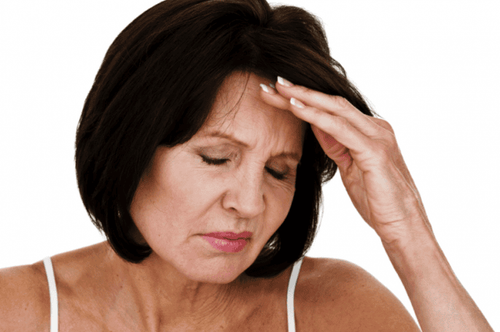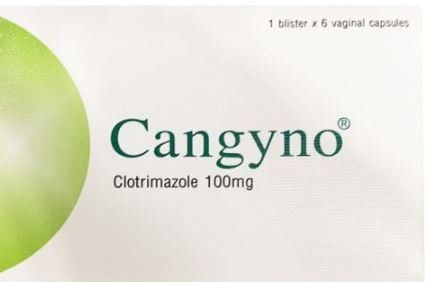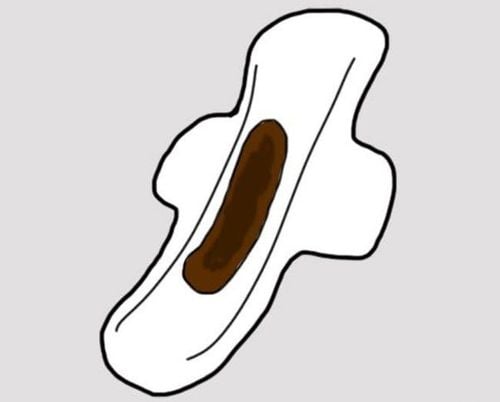This is an automatically translated article.
The article was consulted with MSc, Dr. Trinh Thi Thanh Huyen - Obstetrician and Gynecologist - Department of Obstetrics and Gynecology - Vinmec Hai Phong International General Hospital.Sex life is an important aspect of a person's quality of life. There are many reasons why women have sexual problems such as: Age, hormonal changes,...
1. What causes sexual problems in women?
There are many reasons why women have sexual problems, some of the most common of which are:Age: Sex drive and sexual activity in women sometimes decrease with age. This is normal and nothing to worry about, unless the husband's sexual needs are higher, causing the couple to not get along. Hormonal changes: Hormonal changes in women can lead to changes in sexual desire and behavior. Stress and anxiety disorders. Trouble in relationships. Have certain medical conditions, such as depression. Had a bad sexual experience in the past.

Tuổi tác cũng là một nguyên nhân khiến phụ nữ gặp vấn đề về tình dục
2. What types of problems affect women's sexuality?
Sexual dysfunction in women encompasses many problems, often divided into four groups (although they may overlap):2.1 What is a desire problem? Lack of desire is the problem that women are most concerned about. However, some women feel no desire at all before having sex; It is only when they actually begin to engage in sexual acts that they feel arousal and become lustful. Lack of desire is a real disorder when a woman:
Does not want to perform any sexual act, including masturbation. No or very little sexual thoughts or fantasies. Worried or overly concerned about these problems. 2.2 What is arousal problem? These are the physical and emotional changes that occur in the body in response to sexual stimuli. Many things can cause arousal problems, including medications, alcohol consumption, smoking, drug use, and medical conditions. Anxiety disorders, stress, marital problems, and bad sexual experiences in the past also cause difficulty in arousal.
2.3 What is an orgasm problem? Not having an orgasm during sexual activity is not necessarily a problem. Being close and loving is sometimes enough to satisfy a woman. However, for some women, not having an orgasm is a real concern, and they need a solution.
Females with orgasmic disorder may have never had an orgasm during sex, or have had orgasms in the past but no longer occur after having enough excitement. Arousal intensity can decline with aging.
Orgasm disorders can stem from low self-esteem or a fear of losing control. It can also happen when a woman does not trust her partner. Women who do not reach orgasm also often have problems with arousal.
2.4 What is sex-related pain disorder? Sex-related pain disorder comes in two forms, pain that occurs during sexual activity (not intercourse) and pain during sex. Most women of the sexually active age experience this pain. If the pain is frequent or severe, the woman should see a specialist.

Đa số phụ nữ đều từng trải qua cảm giác đau khi quan hệ tình dục
3. What can affect sexual response?
Smoking, drinking, and drug use affect the sexual response of both men and women. Smoking can reduce blood flow to the genitals, which in turn causes problems with arousal. Alcohol and drugs affect the body's responses. To deal with sexual problems, the first step should be to stop or limit smoking, alcohol or drug use.3.1. What can be done to increase sex drive? Work with your partner to work through anxieties, stress, disagreements related to sex and other aspects. Get closer to each other, don't just focus on intercourse. Increase understanding and improve sexual skills. Make time for sexual acts that are gratifying for both yourself and your partner. 3.2 What can be done to increase excitement? Refer to the following:
Get enough rest. Increase the duration of initial stimulation before intercourse. If it's dry, try a lubricant. Try Kegel exercises. Do not smoke or quit if you are smoking. 3.3 Is there a way to help orgasm? More arousal during sexual activity. 3.4 How to reduce pain during sexual activity? There are a number of methods that can reduce pain during sexual activity such as:
Try different sex positions, or try non-coital sexual acts. Allow plenty of time to be aroused before engaging in intercourse. Use lubricant. Urinate before sex. Take a warm bath.

Tắm nước ấm có thể giúp giảm đau khi quan hệ tình dục
4. How to describe a problem related to sex when consulting a doctor?
Many people feel shy about expressing their sexual problems, try the following expressions:“I have some concerns about my sex life”. "I'm not as interested in sex as I used to be." “Recently I am very sad because I can no longer meet the needs of my husband.” "Recently I don't want to be intimate anymore, what should I do?" "What should I do now that I am completely uninterested in sex?" "Is there a way to improve your sex life when it's getting worse?"
5. What exams may be done by the doctor during the visit?
A full body and pelvic exam will be performed by a specialist to identify problems related to sex. If you have pain during sexual activity, your doctor may do a physical exam to determine what the pain is like. Based on each specific condition, the doctor will give certain indications such as blood tests to measure hormone levels, or suggest a combination of other specialties,...6. Does treatment solve sexual problems?
Each type of sexual dysfunction in women will have a different treatment. Furthermore, sexual problems can overlap making treatment difficult. Often treating the right cause will help solve the problem.Along with drug use, sex therapy can be combined - methods to help explore and deepen understanding of many aspects of sexuality, such as emotional, physical and understanding, from That gives better treatment results.
Please dial HOTLINE for more information or register for an appointment HERE. Download MyVinmec app to make appointments faster and to manage your bookings easily.
Article referenced source: Acog.org












